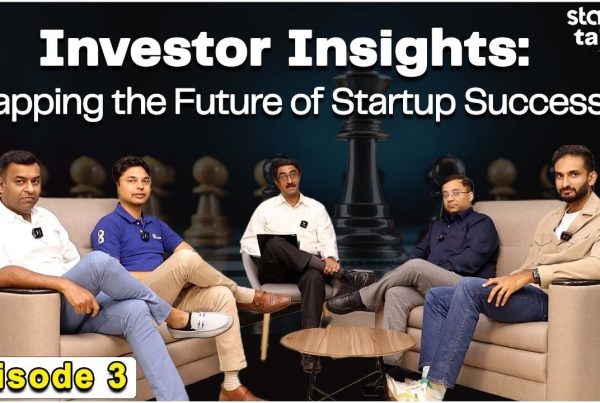Navigating Disruption: Insights from Mahesh Ramachandran at Trescon Tech Expo
The Trescon Tech Expo held on 23 & 24 November at Yashobhoomi (IICC Dwarka), New Delhi, witnessed Mahesh Ramachandran, Partner at Pontaq Cross Border Innovation Fund, sharing profound insights into Digital Acceleration and Transformation (DATE). His reflections shed light on the essence of disruption in today’s entrepreneurial landscape and its pivotal role in achieving success.

Understanding Disruption in the Modern Landscape
“Defining ‘Disruption’ in Today’s Entrepreneurial Landscape”
In the contemporary entrepreneurial sphere, “disruption” encapsulates the radical transformation of industries through innovative ideas, products, services, or business models. This shift, popularized by Clayton Christensen in his book “Innovators Dilemma,” goes beyond incremental improvements, often challenging and reshaping existing market norms. Case studies such as Uber’s business model and the recent Chat GPT exemplify this transformative approach.
“Why Disruption is Essential for Success”
Disruption is deemed essential for success due to its multifaceted advantages. Market differentiation, meeting evolving consumer needs, technological advancements, globalization, economic efficiency, adaptability, attracting investment, and addressing social and environmental impacts collectively contribute to the significance of disruptive strategies in the modern business landscape.
Evolution of Disruptive Innovation
“Pontaq Cross Border Innovation Fund’s Evolutionary Thesis”
Mahesh Ramachandran delves into Pontaq Cross Border Innovation Fund’s evolutionary thesis, which initially focused on cross-pollinating innovation across geographies. The fund’s current emphasis lies in investing in disruptive innovation in clean and climate tech, Agri, health, and fintech within the burgeoning Indian economy. A notable case is Arficus, a startup from a tier 2 city disrupting the diagnostic and predictive healthcare market globally.
Identifying Potentially Disruptive Startups
“Key Factors in Identifying Disruptive Startups”
Identifying potentially disruptive startups requires a keen eye for indicators such as innovative solutions, addressing unmet needs, market potential, scalability, technology leverage, cost reduction, team and leadership qualities, investor interest, customer adoption, regulatory adaptability, competitive responses, and social and environmental impact.
Traits of Entrepreneurs Successfully Disrupting Markets
“Common Traits of Disruptive Entrepreneurs”
Successful disruptors, particularly those building in India for the global stage, share several key traits. These include visionary thinking, adaptability, a deep understanding of local and global markets, an innovative mindset, resilience, strong leadership, customer-centric approaches, financial savvy, networking prowess, ethical and social responsibility, execution excellence, cultural intelligence, and a focus on creating a positive impact.
Effective Strategies for Startups in Crowded Markets
“Strategies for Startup Differentiation in Crowded Markets”
Startups can effectively differentiate themselves in crowded markets through innovative products or services, strong brand identity, exceptional customer experience, niche market focus, value-based pricing, content marketing, leveraging technology, sustainability and social responsibility, strategic partnerships, community building, personalization, agile innovation, effective storytelling, maintaining quality and reliability, visibility through PR and media.
Building Resilience and Agility in VUCA Environments
“Strategies for Thriving in VUCA Business Environments”
To thrive in Volatility, Uncertainty, Complexity, and Ambiguity (VUCA) business environments, startups can embrace a flexible business model, prioritize continuous learning, implement agile practices, foster a strong team culture, manage risks effectively, maintain financial prudence, leverage technology and data, build a diverse and inclusive workforce, stay customer-centric, establish strong networks and partnerships, prioritize health and well-being, maintain effective communication, encourage innovative problem-solving, design for scalability, and cultivate emotional intelligence.
Conclusion:
Mahesh Ramachandran’s insights underscore the dynamic nature of the entrepreneurial landscape, emphasizing the strategic importance of disruption, the evolution of investment theses, and the essential traits and strategies for success in a rapidly changing business environment. As we navigate the complexities of today’s markets, embracing disruption and cultivating resilience and agility emerge as key imperatives for sustained growth and innovation.





